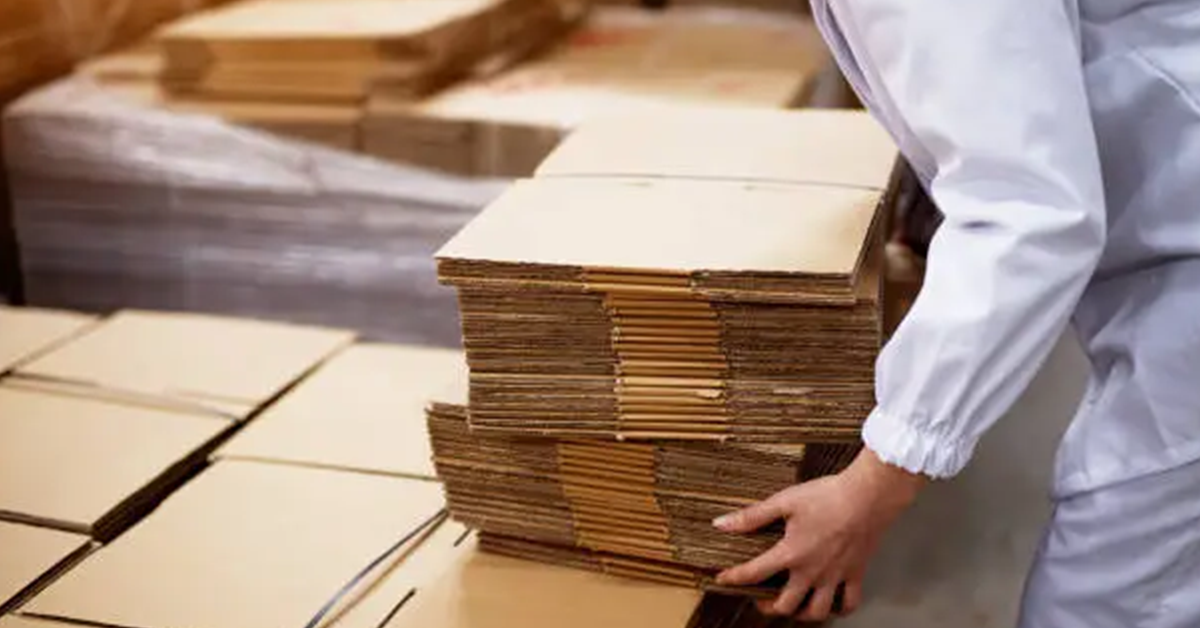3 min read
How PCA’s Acquisition of Greif Impacts Industry Professionals
ResourceWise
:
Jul 15, 2025 2:20:08 PM

The other week, Packaging Corporation of America (PCA) announced its acquisition of Greif’s containerboard operations. The $1.8 billion deal includes two of Greif’s containerboard mills, seven sheet feeder locations, and one full line box plant. In total, this represents nearly 800,000 tons of annual containerboard production capacity.
As the dust settles on the announcement, stakeholders across the value chain are evaluating what this means for their strategies and operations. This blog continues our analysis since the announcement, diving deeper into the implications for critical industry players.
Impacts on Corrugated Box Buyers: Procurement Gets More Complex
For corrugated box buyers, PCA's acquisition strengthens its market presence, especially in the US Midwest, where both acquired mills and several CorrChoice sheet feeders are located.
Key Implications for Buyers:
- Increased emphasis on supply chain planning: As PCA integrates Greif’s assets, short-term changes in fulfillment timing, service protocols, or systems integration may occur.
- Potential for enhanced reliability: PCA has historically invested heavily in mill maintenance. The company estimates $40–$50 million in annual maintenance capex for the acquired Greif operations, compared to Greif’s projected $25 million in savings from the divestment. This increased investment could lead to better asset uptime, improved quality consistency, and potentially new capabilities.
- Shift in sourcing strategies: With a more integrated PCA footprint, buyers may explore opportunities to streamline their procurement across regions, though this may involve adapting to new service structures or delivery models.
Impacts on Suppliers: Shifting Demand and Changing Relationships
Suppliers to Greif and PCA—including recycled fiber providers, chemical companies, and equipment vendors—must now assess how the new structure alters procurement patterns.
Supplier Considerations:
- Shifts in operational focus: PCA's stated goals include operational and production efficiencies and mill grade optimization, which may affect demand patterns for certain inputs like fiber types, process chemicals, or energy use.
- Consolidated procurement: The integration of Greif’s assets presents a mix of opportunities and risks for suppliers—especially those who previously worked with only one of the two companies. For example, suppliers with an existing PCA relationship may now have the chance to win new business from former Greif sites, while the reverse may put others at risk of displacement. Understanding the layout and characteristics of PCA’s newly expanded asset base is critical for suppliers looking to grow or defend their share.
- Proximity-based opportunities: With operations in new geographic locations as a result of the acquisition, PCA may now be able to ship from a closer box plant to many of its existing customers—unlocking internal savings and improving service timelines. The expanded footprint could also allow for more efficient movement of containerboard between PCA’s mills and its box plants, lowering freight costs and streamlining logistics across the integrated network.
Impacts on Competitors: Realigning to a Stronger PCA
Competitors like International Paper and Smurfit WestRock have to think about how this deal could potentially impact market movements.
Competitive Impacts:
- Need for differentiation: As PCA gains scale and reach, competitors may look to stand out by offering greater agility, value-added service, or packaging innovation.
- System efficiencies: PCA’s acquisition brings $60 million in expected synergies through internal integration, logistics, and operational improvements —not necessarily lower prices, but a more streamlined internal system.
- Innovation race: As PCA grows, competitors may accelerate investments in automation, product differentiation, and service offerings.
Adapting to Market Movements with Intelligence
PCA’s acquisition of Greif’s containerboard business underscores the continuing wave of developments in the paper packaging sector. For buyers, suppliers, and competitors alike, staying ahead means more than just reacting—it requires insight-driven adaptation.
FisherSolve’s Mill Intelligence module gives professionals access to mill-level production, cost, and input data—enabling packaging buyers to assess supply risk, suppliers to evaluate demand potential, and competitors to benchmark assets. Whether you're evaluating shifts in fiber usage, freight exposure, or mill-grade optimization, mill data solutions help you make informed business decisions in an evolving industry.
Explore the full module capabilities:
Additionally, FisherSolve has a detailed corrugator database, which complements the mill intelligence with detailed site-level data across North America and Europe. It provides visibility into each corrugated facility’s equipment, product mix, production capacity, and contacts—allowing suppliers to identify growth opportunities, defend existing accounts, and tailor outreach strategies with precision.
Download our brochure to see how our corrugated data can empower your team:
Together, these tools empower industry professionals to move from reactive to strategic—navigating industry changes with clarity and confidence.






![[Video] Molecules to Markets Episode 2: Electrification, Interest Rates, and Emerging Chemical Market Upside](https://www.resourcewise.com/hubfs/images-and-graphics/blog/chemicals/2026/weekly-video-series-molecules-to-markets/CHEM-Weekly-Video-Series-Molecules-to-Markets-2-CHEMICAL%20PRODUCTS%20SOCIAL%20SPEAKER%20HIGHLIGHT.png)